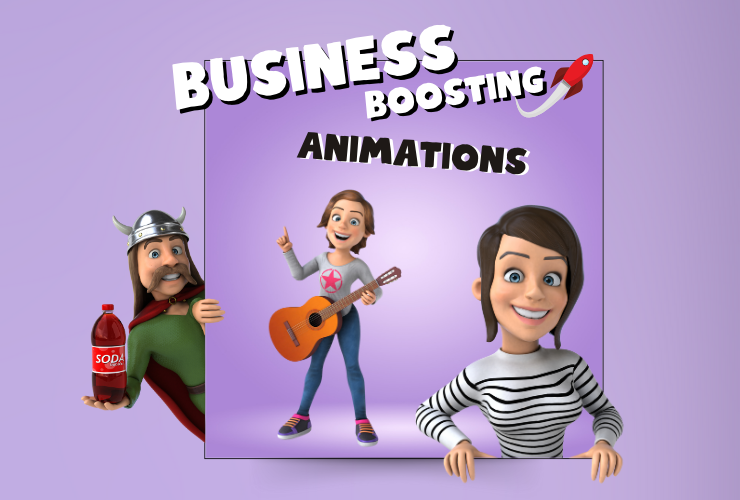The Future of Content Writing
Yo, yo, yo! It's us, Sow Dream, again! We have got some updates for y'all. You see, the future of content writing is upon us, and boy, it's a wild ride! The way things are done now ain't the same as they used to be.
Back in the day, we had to sit at our computers and type away, but now we've got AI doin' all the heavy lifting for us. The way we write is changing faster than we can change our hairstyles (which is pretty fast if we do say so ourselves).
So sit tight, grab a coffee, and get ready for a journey through the world of AI and the future of content writing. Let's have some fun with it!
Key Points
-
Introduction
-
The Evolution of Content Writing
-
Current Trends in Content Writing
-
Usage of AI & Automation in Content Writing
-
Introduction to the AI Tools of Content Writing
-
Emerging Trends & Technologies in Content Writing
-
The Future of Content Writing
-
The Trend toward Voice-based Content Writing
-
The Trend toward Visual Content
-
Authenticity in Content Writing
-
The Approach of Sow Dream in Content Writing
-
The Bottom Line
The Evolution of Content Writing
Content writing has advanced in a way that is truly astonishing. The world of content writing has undergone a significant transformation from the early days of handwritten letters and print newspapers to the digital era of blogs and social media.
We will look at the evolution of content writing and how it has changed in the digital era in more detail in this part.
The Growth of the Content Writing Industry
The growing content writing market has significantly over the last ten years and is now worth an estimated $400 billion globally. The desire for high-quality, well-written, and interesting content to aid businesses in their online marketing initiatives is the primary driver of this rise.
This need has recently increased as a result of the expansion of digital and social media, as companies look to connect with and engage their target audiences across a variety of platforms and devices.
More than 80% of marketers now use content marketing as a component of their entire marketing strategy, according to a recent Contently study. The content marketing sector is anticipated to expand by more than 10% over the next five years, continuing the current trend.
The demand for competent and seasoned content writers who can assist businesses in clearly communicating their messages and developing enduring relationships with their audiences has expanded as a result of the growth of the content writing industry.
Evolution of Content Writing in the Digital Era
The manner that content is created and disseminated has undergone various modifications in the digital age. The popularity of social media sites like Facebook, Twitter, and Instagram has made it simpler for companies to connect with and interact with their target markets. The value of multimedia and graphic material has also increased.
Also, businesses now need to adjust their content to match the demands and preferences of these new technologies due to the increased use of mobile devices and the popularity of voice-activated assistants like Siri and Alexa.
Several content writers have updated their knowledge and skills to reflect the most recent trends and best practices of writing in digital marketing as a result of these changes. This covers the application of technology like artificial intelligence (AI) and machine learning, which are increasingly being utilized to help the production and delivery of content.
These tools enable content creators to produce more specialized and efficient content by analyzing large volumes of data and providing insights into the preferences and habits of target audiences.
Content Writing At Present Time
Writing engaging content is becoming a crucial component of contemporary marketing and aids companies in their Internet marketing initiatives.
Content writers are in charge of producing a wide range of resources that assist businesses in communicating their messages and developing enduring relationships with their audiences, from blogs and articles to social media postings and product descriptions.
Given the significance of this position, a lot of companies are now spending money on expert content writing services to make sure that their material is of the highest caliber, expertly written, and catered to the needs and tastes of their target audiences.
Businesses will continue to invest in high-quality content writing services as they realize the advantages, such as improved brand trust and reputation, higher engagement and conversion rates, and expanded exposure and reach.
Based on the results, it is safe to conclude that content authoring has a promising future. Businesses now have the chance to interact with their target audiences in fresh and creative ways thanks to the industry's continuing expansion and the rising need for high-quality, well-written content.
Content writing will continue to play a crucial part in assisting the success of organizations in the digital era, whether it be through the use of AI and machine learning technology or the development of new and interesting kinds of content.
Current Trends in Content Writing
Businesses and content creators must stay up to date on the most recent trends in the market as the world of content writing continues to change. Here are some of the most fascinating and cutting-edge trends that are now influencing the direction of content creation.
-
Embracing Interactive Content: The rising popularity of interactive content is one of the newest trends in content writing. Businesses are coming up with innovative and unique ways to engage their consumers and offer an immersive experience, ranging from surveys and quizzes to interactive infographics and augmented reality.
In addition to being enjoyable and amusing, interactive content promotes engagement, boosts conversions, and fosters brand loyalty.
-
The Growth of Voice Search Optimization: Consumers are using voice search more and more frequently to interact with technology. Due to the rise in demand for content writers with voice search optimization expertise, businesses are now better able to rank in voice search results and reach a larger audience.
-
Artificial intelligence & Machine Learning: These technologies are being used more and more in content creation, giving authors the ability to evaluate data and produce highly relevant, individualized content for their readers.
The future of content authoring will be increasingly influenced by AI, from sentiment analysis and natural language processing to content optimization and recommendation engines. -
Micro-Moments: As mobile device use increases, consumers are increasingly using their smartphones and tablets to research products and make purchases while on the go. As a result, "micro-occasions"—short, time-sensitive moments when customers expect to find pertinent and helpful information quickly—have become more prevalent.
Because of this, content writers are turning their attention to producing material that is mobile-friendly and specifically designed to satisfy customers in these micro-moments.
-
Genuine Storytelling: In an era of ever-improving technology and automation, customers want a greater human element in the interactions they have with brands. As a result, content writers are using genuine storytelling to engage their readers and establish long-lasting connections.
Businesses may forge a more intimate bond with their customers and increase engagement and loyalty by sharing authentic stories, experiences, and values.
-
The Significance of Data & Analytics: Data and analytics are essential to any content marketing strategy success because they enable organizations better understand their target audiences and make informed decisions.
Content writers are increasingly leveraging data and analytics to inform their writing and gauge the impact of their material, from keyword research and website analytics to social media monitoring and ROI tracking.
Businesses may stay ahead of the curve and continue to succeed with their content marketing initiatives by keeping up with the newest developments in content creation and adopting cutting-edge technologies. as time passes.
7 Types of Content Writing
There is no one-size-fits-all method for writing content. The market is tremendously broad, with a wide range of formats and styles that serve a range of audiences and purposes. You may choose the best strategy for your company and create messages that effectively engage and convert your target audience by being aware of the many sorts of content writing.
Some of the most well-liked forms of content authoring are listed below:
-
Web Content: Writing for the web is called web content, and it is used to engage website visitors with information about your company, its goods, or your services. Writing web content often involves writing for your website's home page, product descriptions, about us pages, and other important locations.
-
Blog Writing: Composing blogs is an essential component of content marketing that may help you develop your brand, increase traffic to your website, and position yourself as an expert in your field. Writing on a blog can take many different shapes, from quick, pithy postings to in-depth pieces that delve deep into a particular subject or theme.
-
Landing Page Writing: Composing Landing Pages - Landing pages are an essential component of many marketing initiatives and are intended to turn website visitors into leads or customers. A good landing page should clearly express the advantages of your product or service and be succinct, compelling, and to the point.
-
E-book Writing: Creating e-books - E-books are a very powerful kind of content marketing and may be used to inform, amuse, or motivate your audience. They can help you establish yourself as a thought leader in your area because they are often lengthier and more detailed than other types of content.
-
Press Release Writing: Composing press releases is an essential component of your public relations plan. They are employed to inform the public and media of brand-new offerings from businesses. A well-written press release can promote media coverage and increase website traffic.
-
Case Study Writing: Creating case studies is an effective technique to highlight the advantages of your goods or services and show how your company has assisted actual consumers in resolving genuine issues. They are excellent for establishing credibility and trust with your target audience because they are often written in a storytelling fashion.
-
Scriptwriting: The creation of scripts, stageplays, TV series, and even video games uses the specialized writing technique known as scriptwriting. It requires a special set of abilities, including knowledge of narrative, character development, timing, and dialogue. The purpose of writing a script is to engross the audience in a compelling and unforgettable story. Strong attention to detail, a vivid imagination, and a thorough comprehension of what makes a tale compelling are necessary for effective scriptwriting.
Keep in mind that these are the categories into which content authoring can be divided most frequently. In addition, there are various additional forms of writing.
As you are aware, content writing is a complicated and varied field that includes a wide range of styles, formats, and methodologies. If you want to create messages that successfully engage and convert your target audience, it's imperative that you understand the different forms of content writing and select the best strategy for your company.
Challenges Faced by Content Writers
Not everything about content writing is sunshine and rainbows. In truth, every writer must overcome a variety of obstacles at some point in their careers. The content writing game might be challenging to play because of obstacles like writer's block, juggling numerous tasks, and client rejection.
Try not to worry, dear friends! The most frequent difficulties experienced by content writers will be covered in this part, along with some writing hacks on how to get through them. Just relax and recline.
8 Common Challenges that a Writer Faces
-
Writer's Block: Overcoming writer's block and coming up with fresh content ideas is one of the major problems for content writers.
-
Meeting Deadlines: Due to the quick speed of the online world, content writers frequently operate under deadline pressure in order to meet customer demands.
-
Staying Up to Date: Content writers need to stay current with the most recent developments in their industry because the digital world is always evolving.
-
Balancing Quantity & Quality: Content writers frequently have to create a large amount of work while yet upholding a high standard of quality.
-
Research & Verification: A significant amount of research and verification must be done in order to ensure that the information included in their material is accurate and current.
-
Adapting to Different Writing Styles: Content writers need to be able to change their writing style to match their clients' tone and style.
-
Coping with Rejection: For content authors, dealing with rejection and critical comments is a regular difficulty.
-
Staying Motivated: It can be tough to stay motivated and enthusiastic about writing, particularly while working on lengthy projects or dealing with challenging clientele.
How can a Writer Overcome the Challenges?
-
Overcoming Writer's Block: Content writers can try taking a break, participating in creative exercises like writing exercises or brainstorming sessions, or looking for inspiration in other places like books, articles, or podcasts to get beyond writer's block.
-
Meeting Deadlines: In order to meet deadlines, content writers can arrange their days, set priorities, and work quickly. They may also effectively interact with their clients to make sure that they are aware of the specifications and the deadline.
-
Staying Up-to-Date: Content writers can remain informed by subscribing to professional journals, attending conferences and workshops, and keeping up with thought leaders and subject matter experts.
-
Balancing Quantity & Quality: Content writers can set reasonable goals, prioritize their work, and use tools and approaches to increase their productivity and efficiency to balance quantity and quality.
-
Research & Verification: Content writers can use reputable sources, fact-check their information, and speak with industry experts to make sure their work is accurate.
-
Adapting to Different Writing Styles: To adapt to various writing styles, content writers can conduct market research, examine the client's brand voice, and comprehend the preferences and interests of their target audience.
-
Coping with Rejection: Content writers can seek constructive criticism, learn from their mistakes, and have a positive mindset to cope with rejection and negative feedback.
-
Staying Motivated: Content writers can stay motivated by setting attainable goals, surrounding themselves with uplifting individuals, and requesting feedback and appreciation for their work.
.
Usage of AI & Automation in Content Writing
Content writing has also witnessed dramatic change as a result of the emergence of artificial intelligence (AI) and automation.
Content writers now have access to a variety of tools and platforms thanks to improvements in AI technology, which can aid them in producing high-quality material more quickly and effectively. Understanding the advantages and disadvantages of AI's impact on content creation is essential for content writers who want to stay on the cutting edge.
My creative friends, In this section, we'll look at how AI affects content writing as well as the benefits and drawbacks of using AI in content writing. Hold on tightly.
Impact of AI on Content Writing
The pace and efficiency of writing have been greatly improved, and the creation and distribution of content have been revolutionized, thanks to AI.
On the one side, AI has made it quicker and simpler for content writers to create big volumes of high-quality content, freeing up time and resources that can be used to concentrate on other writing-related activities.
On the other side, the development of AI has given rise to worries about the future of the content writing industry as well as the possibility of harmful exploitation of AI-generated content.
Nevertheless, is it truly a cause for concern?
Pros and Cons of AI in Content Writing
Almost everything in the world has two sides. The Good or the Bad, The Light or the Dark. And nothing is different when it comes to the advancements of AI in content writing.
Here we will make some quick comparisons by finding out the Pros and Cons of AI in content writing.
Pros:
-
Increased Speed and Efficiency: By using AI technologies, content writers can produce high-quality content much more quickly than they could if they wrote it by hand. This can be especially helpful for writers who are working on numerous projects at once or have strict deadlines to meet.
-
Improved quality: AI technologies are made to assist authors in creating content that is more engrossing, pertinent, and educational, as well as to enhance grammar, spelling, and syntax. This may lead to higher-quality material that readers are more willing to share and interact with.
-
Enhanced search engine optimization (SEO): Using AI, authors can assess and optimize their material for search engines, increasing the likelihood that it will rank higher in search results and bring more visitors to their websites.
Cons:
-
Lack of creativity: Others contend that a heavy reliance on AI techniques can result in a lack of originality and innovation in the material. AI technologies may not be able to create truly innovative and original material because they can only develop content based on algorithms and data.
-
Risk of errors: Although AI technologies can boost content quality, there is still a chance for mistakes, especially when it comes to grammar and syntax. The output of AI tools must be carefully examined, and any necessary modifications must be made, by content authors.
-
Dependence on technology: Like with any technology, there is a risk of being too reliant on AI tools, which could lead to a loss of skills and expertise if the tools were to stop working or become unavailable.
These are some of the benefits and drawbacks of using AI in the process of content writing. Content writers should carefully consider the advantages and disadvantages of using AI in their work before deciding when and how to do so, even though it has the potential to significantly speed up and improve content writing in terms of both quality and speed.
Introduction to the AI Tools of Content Writing
It's difficult to overlook the impact of artificial intelligence (AI) on the content writing industry as we look to the future of the profession. The use of AI tools has already begun to transform how we write, edit, and distribute content. AI tools are transforming how we approach content creation, from content generation to content optimization.
The potential of AI solutions for content writing to automate repetitive and tedious operations is one of its most important benefits. This gives content writers more time to concentrate on other important areas of their business, like strategy and creativity. AI tools can also help to speed up turnaround times and improve workflows by streamlining the content development process.
These are a few AI technologies for content writers to utilize or implement:
-
Jasper.ai: Jasper.ai is a tool that can assist you in overcoming creative barriers and producing original material more quickly. It offers ideas and suggestions based on your input and might assist you in creating fresh and engaging content.
-
Copy.ai: Copy.ai is a powerful AI content generator that aids in improving your copywriting. Copy.ai will create excellent copy for your website, social media accounts, or other marketing materials based on a prompt or topic that you provide.
-
Compose.ai: Compose.ai is a Chrome addon that uses AI to save writing time by up to 40%. You can write more quickly and efficiently with its real-time editing and suggestion features.
-
Genei: Using AI, this tool can speed up the production of blogs, articles, and reports. Genei will offer you pertinent facts and write recommendations based on the topic or research question you enter.
-
TimeHero: You can plan, coordinate, and automate your work using TimeHero. It can help you remain on top of your schedule and manage your daily duties, projects, and events.
-
Sembly: This software records your meetings and produces insights based on what was spoken. You can use it to keep track of decisions made, actions taken, and other crucial details that were covered in the meeting.
-
Fontjoy: Easy font matching. Create the ideal font pairings.
These AI tools are used in general by content writers. But there’s one final player, who is claimed to be the most advanced one.
Can you guess?
Oh wait, here’s a hint for you!
Hint: This tool was introduced recently.
The answer is none other than “ChatGPT & BARD.”
How has ChatGPT changed the Game of Content Writing?
The development of natural language processing (NLP) technology in recent years has revolutionized the content writing sector. The rise of sizable language models like ChatGPT has been one of the most intriguing advances in this field.
OpenAI created the language model ChatGPT with the goal of simulating human-like language processing. ChatGPT was trained on a sizable dataset of human language, in contrast to earlier language models that needed manual coding and training, and it can provide responses to text-based prompts very accurately.
So how has ChatGPT altered the content writing landscape? One benefit is that it has increased the efficiency of content generation. Content creators can enter a prompt or topic, and ChatGPT can quickly produce full articles or blog posts. This enables content producers to concentrate more on coming up with ideas and constructing a message while spending less time actually writing.
ChatGPT also aids content authors in honing their writing techniques and improving their craft. Content writers can improve their ability to create interesting and persuasive writing by studying how ChatGPT develops language and using those insights in their work.
ChatGPT does have certain limits, though. Even while it can provide extremely precise answers, it is still only a machine, and occasionally its answers can be off-target or lack the complexity and originality of human language. Furthermore, the usage of AI-generated content raises questions regarding its veracity and the possibility that it will be misappropriated.
Despite these drawbacks, ChatGPT has already had a big impact on the content writing industry, and it's possible that in the future, we'll see even more creative applications for language models like ChatGPT.
Emerging Trends & Technologies in Content Writing
New trends and technology are always emerging, and the world of content writing is no exception. The following are some of the most important trends and technology now influencing the sector:
-
AI-Generated Content: As we've already mentioned, more and more material is being written using AI. AI-powered technologies can produce material more quickly and effectively, but they also bring up significant ethical and real-world concerns.
-
Personalization: Consumers want individualized content that speaks directly to their interests and requirements in the current digital era. To improve user engagement, content writers must be able to adapt their work for different audiences.
-
Video Content: As video content gains popularity, content writers must be able to develop engrossing stories and scripts that connect with viewers.
-
Interactive Content: Quizzes, polls, and interactive infographics are examples of interactive content that can boost engagement and improve the efficiency of content marketing initiatives.
Potential Impact of the Trends & Technologies on the Content Writing Industry
The industry as a whole is anticipated to be severely affected by the new trends and technology in content writing. Here are a few outcomes that might occur in the upcoming years:
-
Increased Efficiency: Using AI-powered tools and other cutting-edge technology can assist content writers in producing content more quickly and effectively, freeing up time and resources to concentrate on other crucial activities.
-
New Forms of Content: As interactive and video content becomes more popular, content creators may need to learn new techniques and adjust to new platforms in order to stay current.
-
Greater Emphasis on Personalization: Content writers will need to improve their abilities to cater their writing to particular audiences as consumers seek more personalized material.
-
Shift in Writing Styles: AI-generated content and other upcoming technologies may cause a change in writing styles that places a higher focus on conciseness, clarity, and audience-friendly language.
Role of Writers to Adapt the New Trends & Technologies
It's critical for writers to adopt new trends and technology as the content writing market continues to change if they want to remain competitive. Here are a few strategies authors can use to keep in the know:
-
Embrace AI-Generated Content: Notwithstanding the concerns that have been raised about the use of AI-generated content, it is crucial for authors to comprehend how these tools operate and be prepared to integrate them into their workflow when necessary.
-
Learn New Skills: In order to stay relevant, writers must acquire new abilities in the fields of interactive and video content, which are becoming more and more popular.
-
Keep Up with Industry Trends: In order to be ready to adjust to shifting demands, content writers should keep abreast of new developments in industry trends and technologies.
-
Emphasize Authenticity: Writers should stress the value of real, human-written content as the use of AI-generated material increases. This kind of content talks to audiences directly and creates a relationship with readers or viewers.
The Future of Content Writing
The field of content writing is about to go through some huge changes as the world continues to move toward a digital-first economy. The future of content writing looks promising as emerging technologies like artificial intelligence, machine learning, and others take center stage.
Opportunities & Challenges in the New Era of Content Writing
There are a lot of chances and challenges in the new era of content writing. On the one hand, writers will be able to produce content more effectively, precisely, and quickly than ever before, thanks to the growing usage of AI-powered tools. Writing professionals will also need to learn how to use these new tools and adapt to new writing formats and styles as a result of this change.
In addition, concerns regarding the place of human writers in the creative process are raised by the rise of automation and AI in content creation. While computers are capable of producing language, they are unable to mimic the subtleties of human intellect, emotion, and experience. As a result, there will always be a need for writers who can use their original viewpoints and creativity to create content of the highest caliber.
Ultimately, the future of content writing presents a wealth of exciting chances for writers to broaden their skill sets, adopt new technology, and produce influential content that connects with consumers in a quickly changing digital environment. To be competitive in the field, authors must be equipped to deal with the new obstacles that are presented.
The Trend toward Voice-based Content Writing
Voice-based content is rising as the new trend in content writing as consumers demand new and convenient alternatives to consume content in the present digital world. Voice-based entertainment is proving to be an increasingly popular format, from podcasts and audiobooks to virtual assistants like Amazon's Alexa and Google Assistant.
In order to stay current and give customers new ways to interact with their brand, businesses are turning their attention to voice-based content.
The Rise of Voice-based Content Writing
Voice-based programming will surely become more popular. It is just a matter of time. This is due to the distinct advantages of simplicity and accessibility that voice-based content provides over other types of content writing. The younger generation, which has grown up with technology and is accustomed to fast satisfaction, finds it particularly tempting.
Furthermore, it is crucial for businesses to adjust to this trend because it is predicted that the use of smart speakers and virtual assistants will increase dramatically in the upcoming years.
The Benefits of Voice-based Content Writing
Writing content using a voice offers a number of advantages that content written using other methods would not. First off, offering a fresh and approachable medium, it enables firms to reach a bigger audience. Second, it gives companies the ability to provide more interesting and personalized content, which can increase client loyalty. It also presents a chance to distinguish oneself from the competition by giving clients a fresh and cutting-edge method of communication.
As you already know, organizations ought to adopt the new trend of voice-based content writing in the field of content writing. It offers a number of advantages that can assist in enhancing client engagement, raising brand awareness, and eventually spurring growth.
Businesses need to adjust to this trend in order to benefit from the advantages that smart speakers and virtual assistants offer as their use grows.
The Trend toward Visual Content
Visual content has emerged as a breath of fresh air for content writers and users alike in a world of information overload. Visual content has become an increasingly popular approach to engage viewers, from colorful infographics to attention-grabbing videos. Studies have found that articles with pertinent photographs receive 94% more views than those without.
But why is there such a shift toward visual content? Is it more than just a trend, or is there something more going on here? Let's examine the value of visual content for interacting with audiences as well as the potential and difficulties involved in producing visually appealing content.
Importance of Visuals in Engaging with Audiences
Written content cannot engage audiences the way that visual content does. People receive visual information more quickly than any other type of communication because it is in their nature to do so. Visuals can aid in the simplification of difficult ideas, the expression of emotions, and the telling of compelling stories.
Visuals are essential for grabbing and holding audiences' attention in everything from social media postings to website design.
In fact, studies have shown that visual material may greatly boost engagement rates, with postings featuring images or videos performing significantly better than those without. This emphasizes how crucial it is to produce aesthetically appealing material that is pertinent to and engaging for your target audience.
Challenges & Opportunities in Creating Visual Contents
While there is no denying the advantages of visual content, there are also difficulties that content producers must overcome. The requirement for excellent images that are pertinent to and appealing to the target audience is one of the biggest obstacles. It might take a lot of effort and money to produce visually appealing educational materials.
Creators of visual material, on the other hand, have a lot of chances if they are
skilled in their craft. The demand for high-caliber pictures will only increase as viewers become more visual. Brands and content providers may differentiate themselves from the competition and stand out in a crowded online arena by having the capacity to produce appealing visual content.
The shift toward visual material is, overall, a promising development for the future of content writing. Even though there are obstacles to overcome, there are numerous chances for participation and development. In the future, it will be vital for content producers to master the art of creating visually appealing material so they can connect with their target audience and effectively convey their message to viewers.
The Approach of Sow Dream in Content Writing
At Sow Dream, we are aware that content writing entails more than just filling a page with words. It involves developing a distinctive and captivating experience that grabs your audience's attention and motivates them to take action. Each project is given a thorough attention-to-detail approach by our team of experienced writers, who concentrate on the particular requirements of our clients and their target audience.
We take great satisfaction in our ability to create engrossing stories that not only entertain but also produce outcomes. Our writer's broad backgrounds and areas of experience, which span from journalism to creative writing, guarantee that we can approach each job from a fresh viewpoint. Because of our diversity, we are able to contribute new and creative ideas and ensure that each piece of content we produce is truly original.
We thoroughly analyze the client's business and target market before we start writing in order to produce material that appeals to their intended audience. In order to better understand the needs and preferences of the target audience, we perform customer surveys, analyze competitors, remain current on industry trends, and monitor market conditions.
In addition to our focus on accuracy and thorough research, we are dedicated to producing original, SEO-friendly content of the highest caliber. We employ the most recent tools and methods to optimize content for search engines, making sure that it ranks highly and is simple for potential customers to find.
At Sow Dream, we think what makes us stand out from the competition is our distinctive approach to article writing. Our goal is to deliver outstanding content to our customers that go above and beyond their expectations. We look forward to continuing to push the limits of what content writing is capable of.
The Bottom Line
It's obvious that the future of this sector is full of both exciting prospects and challenging problems after exploring the depths of content writing. The opportunities for content writers are virtually limitless due to the industry's expansion and the advancement of writing tools and methods.
It's critical to bear in mind the value of keeping on the cutting edge and adjusting to new trends and technologies as we look to the future. The future of content writing is all about remaining relevant and interacting with audiences in fresh, creative ways, whether it be due to AI and automation or the increase of voice-based and visual content.
The potential advantages for content writers and businesses alike are well worth the effort, even though there might be obstacles along the way, such as the requirement for authenticity and surmounting the challenges of developing captivating imagery.
So let's welcome the creative and dynamic world of content writing with open arms, ready to plant the seeds of innovation and reap the benefits of development and success. And who knows, with a little comedy and imagination, content authoring might just become as popular as those TikTok dancing challenges.






